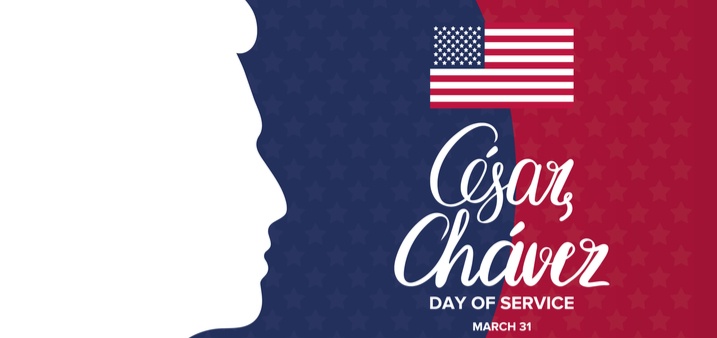Today, all Americans have at least some familiarity with the civil rights movement of the 1960s. No matter where you live, most people will easily cite Martin Luther King, Jr., Robert Kennedy, or Rosa Parks as individuals who dedicated their lives to social justice and racial equality.
If you ask a Californian about the civil rights movement, however, you might get a different response. While California residents undoubtedly honor those leaders, we have our own civil rights hero that holds a special place in our hearts — Cesar Chavez.
Indeed, while President Obama declared March 31 (the birth date of Mr. Chavez) a national holiday in 2014, California is one of a small handful of states that takes the day as an official state holiday. Among other things, that means that state agencies and all state courtrooms are closed in honor of this important man.
Who was Cesar Chavez?
Undoubtedly, Cesar Chavez is best known as a crusader for humane working conditions for farm workers and other laborers. We’ll talk about that political movement in a moment. First, let’s take a look at the life that led him to become a critical leader for the Latino American community.
Chavez was born in Yuma, Arizona in 1927, right at the cusp of the Great Depression. Like many farm families of that era, they lost their land as the financial crisis began to hit. Indeed, it was that loss that spurred the Chavez family to move to California, where the state’s fertile valleys offered consistent work for migrant laborers.
Along the way, Cesar Chavez witnessed horrific working conditions. Some landowners refused to pay workers after they performed back-breaking labor. Others simply offered, in lieu of wages, the ability to live in dilapidated farm shacks. All expected super-human effort in exchange for sub-par compensation.
Seeking to better his life, Mr. Chavez joined the Navy and served admirably toward the end of World War II. When his service ended, however, he found himself drawn back to the migrant workers who touched his heart so deeply. That’s when his life as a political activist began in earnest.
A life of activism
It was 1952 when Cesar Chavez returned to California. He quickly joined the “Community Service Organization,” a civil rights group focused on issues faced by Latino Americans. Just six years later, in 1958, he had become that organization’s national director. Four years after that, Mr. Chavez would co-found the National Farm Workers’ Association (currently known as United Farm Workers).
It was his work with that organization that put Chavez in the national spotlight and sealed his place in American history. Chavez had a unique ability for uniting people of different nationalities to rally for common causes. Early in his tenure with UFW, for example, Chavez brought Mexican and Filipino workers together to fight for better working conditions for California’s vast army of grape growers. The movement was so powerful that it prompted leaders of other prominent American Unions to contribute financially to the cause.
He quickly became known as an aggressive, though nonviolent, activist. One of his most famous acts of defiance was a 340 mile march from California’s central valley farming communities to the Capital Mall in Sacramento. He also famously organized boycotts of non-union grapes and led hunger strikes to bring attention to the plight of the state’s large population of farm workers.
His efforts were not in vain. By the end of the 1970s, California farm workers were the highest paid in the nation. To this day, California’s agricultural labor force has some of the best working conditions in the land. That said, there is still a long way to go, which is why the UFW remains an active and important organization.
So why does California take a day off?
California’s agriculture industry is incredibly important to the state’s economy and financial welfare. It is currently a $50 billion a year industry that employs roughly 400,000 people. The fact that Cesar Chavez brought dignity and humanity to that working population is an unparalleled feat. The fact that his organization – the United Farm Workers – keeps fighting for decent working conditions for those individuals over 50 years after he started the movement speaks to the importance of his mission.
Californians take Cesar Chavez day off to honor a man that understood the importance of this labor force before anyone else did. We take it off to recognize the principles of fairness and justice. Most of all, we take it off out of respect for someone who fought the status quo for the betterment of mankind.
If you want to learn more about the life and activism of Cesar Chavez, check out this article.









